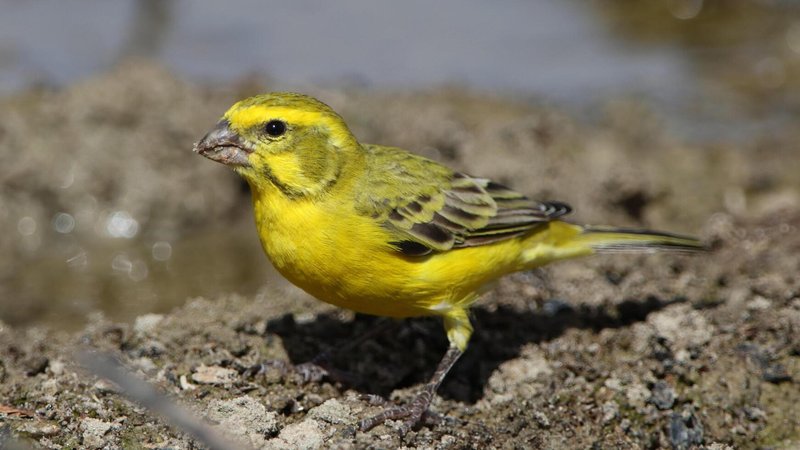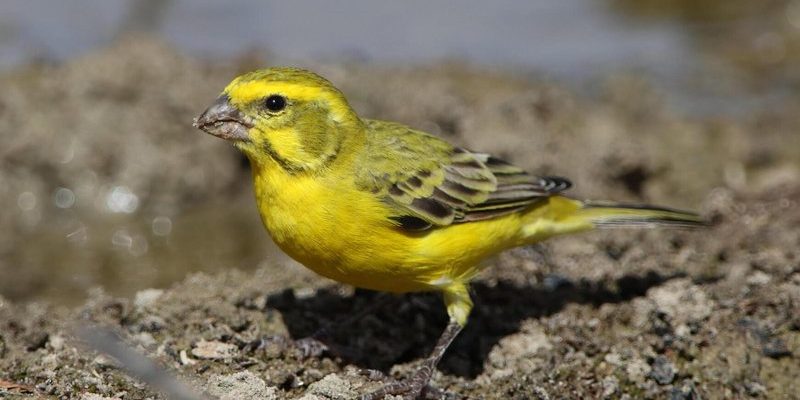
Understanding what canaries eat and how they forage can give you insight into their well-being, whether you’re a pet owner or just curious about these delightful creatures. So, grab a cup of coffee, and let’s explore the diet of canaries and their foraging habits.
What Do Canaries Eat?
When it comes to diet, canaries are primarily seed eaters, but they also enjoy a variety of other foods. Their main staple is usually a mix of seeds, particularly grass seeds. Think of these seeds as the bread and butter of their diet. You might find them munching on seeds from dandelions or thistles. These seeds provide essential nutrients and energy for their singing and flying.
In addition to seeds, canaries love fresh fruits and vegetables. Foods like spinach, broccoli, carrots, and apples can be great additions to their meals. It’s like giving them a colorful buffet! Fresh produce not only provides hydration but also vitamins and minerals that keep them happy and healthy. Just remember to chop these foods into small pieces. It’s easier for them to eat and digest.
For those who have canaries at home, offering a well-rounded diet is crucial. A good seed mix that includes canary grass seed, along with a selection of fresh fruits and veggies, can make a big difference in their health and happiness.
How Do Canaries Forage?
Canaries are natural foragers, and they have some interesting behaviors when it comes to finding food. Picture this: a canary hopping around, pecking and scratching the ground in search of tasty morsels. They use their keen eyesight to spot seeds and other treats hidden among the grass.
When in the wild, canaries often forage in flocks. This communal behavior helps them find food more efficiently. They keep an eye out for each other, and if one canary finds a good spot, the others are quick to join in. But even when they’re solo, canaries have a knack for spotting food. Their ability to remember where they’ve found food before can be quite impressive.
Another fun fact is that canaries are not just looking for food on the ground; they also search high and low. They might peck at branches or leaves where seeds might fall. It’s a reminder of their agility and cleverness. Honestly, it’s like a treasure hunt every day for these little birds!
Feeding Canaries in Captivity
If you’re a canary owner, you want to make sure you’re providing the best diet possible. Here’s the thing: a balanced diet is key to keeping your feathered friend happy and healthy. Start with a quality seed mix specifically formulated for canaries. This mix usually has a blend of seeds that supply essential oils, proteins, and carbohydrates.
You can enhance their diet with fresh produce. Try introducing small, chopped pieces of leafy greens or fruits a few times a week. Canaries can be picky, so it might take some time for them to accept new foods. Just be patient, and keep offering different options.
Don’t forget to provide fresh water daily. It’s crucial for their digestion and overall health. And make sure to clean their water dish regularly to prevent any buildup of bacteria. Trust me, a happy canary will reward you with joyful singing, so it’s worth the effort!
Common Foods to Avoid
While canaries have a varied diet, it’s essential to know what foods are unsafe for them. Some human foods can be harmful to birds, so it’s vital to steer clear of these. Here’s a short list of foods to avoid:
- Avocado: This fruit contains a chemical called persin, which can be toxic to birds.
- Caffeine: Any drinks containing caffeine, like coffee or tea, should be avoided.
- Chocolate: Just like dogs, chocolate is a definite no-no for canaries.
- High-fat foods: Foods like nuts and seeds in excess can lead to obesity.
Keeping these foods off the menu helps ensure your canary stays healthy and vibrant. Always do a little research if you’re unsure about a specific food. It’s better to be safe than sorry!
Foraging Behavior in the Wild
In their natural habitat, canaries exhibit fascinating foraging behavior that differs from how they feed in captivity. In the wild, they’re often seen hopping around in grasslands and open areas, using their instincts to locate seeds and insects. Here’s where the fun comes in! They use their sharp beaks to crack open tough seed coats, showcasing their adaptability.
Canaries are also known to forage during specific times of the day, typically early in the morning and late afternoon, which is when insects are most active. During these times, you might see them fluttering about, catching small bugs or nibbling on seeds that fall from plants. It’s a bit like a daily routine that helps them stay in tune with their surroundings.
One thing to bear in mind is that wild canaries also face competition for food. They often need to be quick and clever to outsmart other birds or even pests. This competitive aspect makes their foraging experience exciting and full of energy.
The Importance of a Balanced Diet
For both wild and captive canaries, a balanced diet is crucial for overall health and longevity. A lack of essential nutrients can lead to health issues, like feather plucking or weakened immune systems. In the wild, canaries are constantly foraging for food, which naturally helps them maintain a balanced intake of nutrients.
In captivity, it’s your responsibility as a pet owner to mimic this balance in their diet. Providing a mix of seeds, fresh produce, and occasional treats can help achieve this. Think of it as preparing a nutritious meal plan! It’s about giving them a variety of foods that promote their health.
Paying attention to their diet not only helps keep them healthy but also impacts their mood and behavior. A well-fed canary is often more lively, cheerful, and responsive. Imagine giving your feathered friend a happy life filled with song and movement!
Understanding what canaries eat and how they forage gives us a glimpse into their vibrant lives. These small birds are not just pretty faces; they’re dynamic creatures with unique needs and behaviors. Whether in the wild or as pets, their feeding habits are essential to their well-being.
So, if you’re caring for a canary or just curious about them, keep their dietary preferences in mind. Offering a mix of seeds, fruits, and veggies can enhance their quality of life. It’s a small effort that leads to a happy and healthy bird that fills your space with music and joy. Embrace the journey of learning about these charming creatures, and you’ll find there’s always more to discover.

